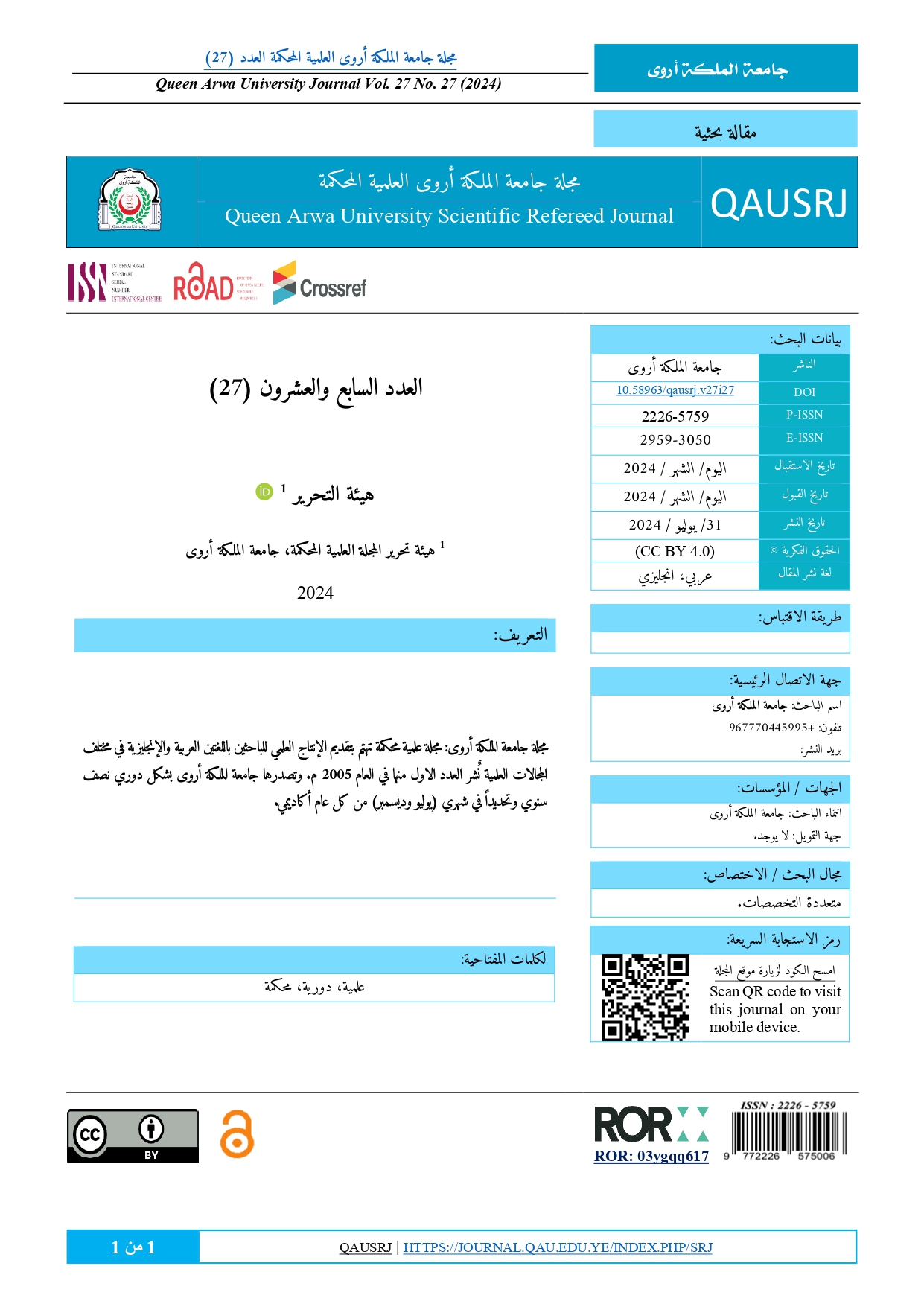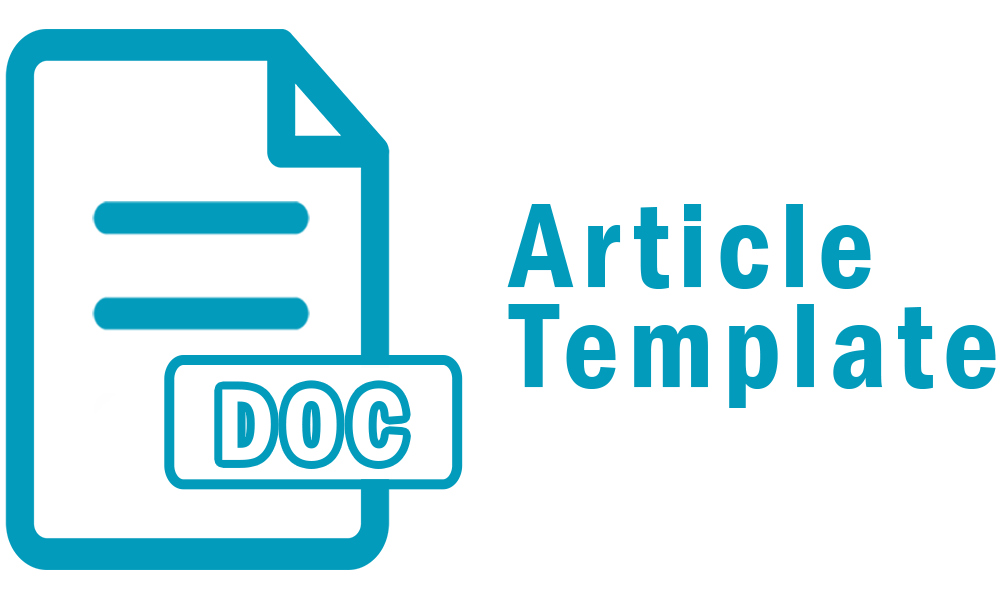Determinants of economic corruption in the public sector of selected Islamic countries
An Econometric Study 2000-2020
DOI:
https://doi.org/10.58963/qausrj.v27i27.220Keywords:
Political freedom , economic freedom , inflation , foreign investment , credit , per capita national income , corruptionAbstract
The study aimed to review the most prominent determinants that affect economic corruption in the public sector in addition to address the reality of these determinants in a group of Islamic countries.
The study concluded a set of results, the most important of which is that the increase in per capita income and the volume of foreign direct investment , are negatively affect the corruption, while economic freedom , inflation rate and the share of total credits to GDP have appositive impact on corruption. Finally the political freedom has a positive impact but it is insignificant.
The study recommended the need for governments to pay attention to increasing the per capita share of national income, and to give a good amount of political and economic freedom by removing restrictions and penalties if it is in the interest of society. In addition to controlling inflation through its financial and monetary institutions, finding modern means that comply with Islamic law, and taking measures that would attract foreign investment, such as reconsidering tax laws. Finally there is a need for families, schools, universities, the media, and the Ministry of Awqaf to play their role in education and guidance.
Metrics
Downloads
References
العبدلي, ع. ب. ع. (2010). محددات التجارة البينية للدول الإسلامية باستخدام منهج تحليل البانل. مجلة دراسات اقتصادية إسلامية, 16(1), 3-52.
Al-Abdali, A. B. A. (2010). Determinants of Intra-Islamic Trade Using Panel Data Analysis Method. Journal of Islamic Economic Studies, 16(1), 3-52.
بريك, و. (2020). أثر الحرية الاقتصادية والسياسية على الفساد في الأردن جامعة اليرموك، كلية الاقتصاد والعلوم الإدارية]. جامعة اليرموك.
Buraik, W. (2020). The Impact of Economic and Political Freedom on Corruption in Jordan [Yarmouk University, Faculty of Economics and Administrative Sciences]. Yarmouk University.
حجازي, ع. (2014). أثر الحرية الاقتصادية والحرية السياسية على الفساد في الدول العربية. مجلة التنمية والسياسات الاقتصادية, 16(2).
Hijazi, A. (2014). The Impact of Economic and Political Freedom on Corruption in Arab Countries. Journal of Development and Economic Policies, 16(2).
خروف, م., & ثوامرية, ر. (2018). أثر الفساد على التنمية المستدامة جامعة قالمة، كلية العلوم الاقتصادية].
Khrouf, M., & Thouwameria, R. (2018). The Impact of Corruption on Sustainable Development [Guelma University, Faculty of Economic Sciences].
Asteriou, D., & Hall, S. G. (2007). Applied econometrics: A modern approach (Revised ed.). Palgrave Macmillan.
Ata, A. Y., & Arvas, M. A. (2011). Determinants of economic corruption: A cross-country data analysis. International Journal of Business and Social Science, 2(13), 161-169.
Baltagi, B. H. (2005). Economic analysis of panel data (3rd ed.). John Wiley & Sons.
Ghaniy, N., & Hastiadi, F. (2016). Political, social, and economic determinants of corruption.
Gujarati, D., & Porter, D. (2009). Basic econometrics (5th ed.). McGraw-Hill Irwin.
Jichi, S., & Cabro, S. (2019). Does Economic Freedom Determine the Control of Corruption? Kapadokya Akademik Bakış, 2(2), 79-96.
Larraín B, F., & Tavares, J. (2004). Does Foreign Direct Investment Decrease Corruption? Cuadernos de Economía, 41(123), 217-230.
Pesaran, M. H., Shin, Y., & Smith, R. P. (1999). Pooled mean group estimation of dynamic heterogeneous panels. Journal of the American Statistical Association, 94(446), 621-634.
Qerimi, Q. R., & Sergi, B. S. (2012). The Boundaries of a Neglected Relationship: Corruption and Economic Freedom. Problems of Economic Transition, 55(2), pp. 68-97.
Sahaa, S., Gounderb, R., & Saha, S. (2011). Does higher levels of democracy and economic freedom reduce corruption: some cross-national and regional evidence.
Shabbir, M., & Anwar, M. (2007). Determinants of corruption in developing countries. Pakistan Development Review, 46(4).
Thomas, R. L. (1997). Modern econometrics: An introduction (1st ed.). Addison Wesley Longman.
Downloads
Published
Issue
Section
Categories
License
Copyright (c) 2024 Queen Arwa University Journal

This work is licensed under a Creative Commons Attribution 4.0 International License.













